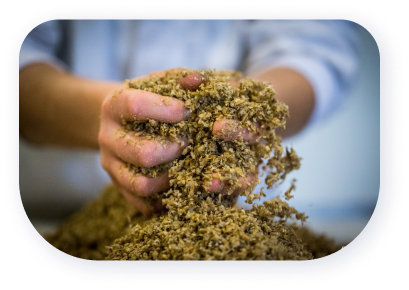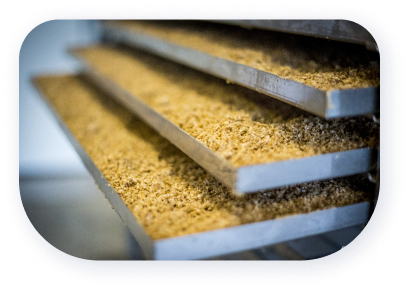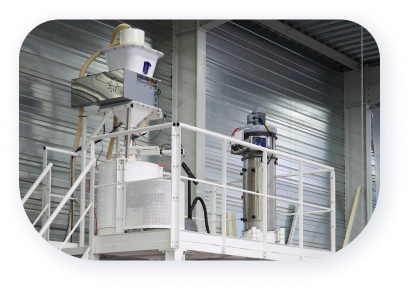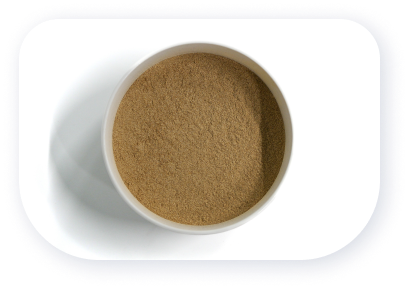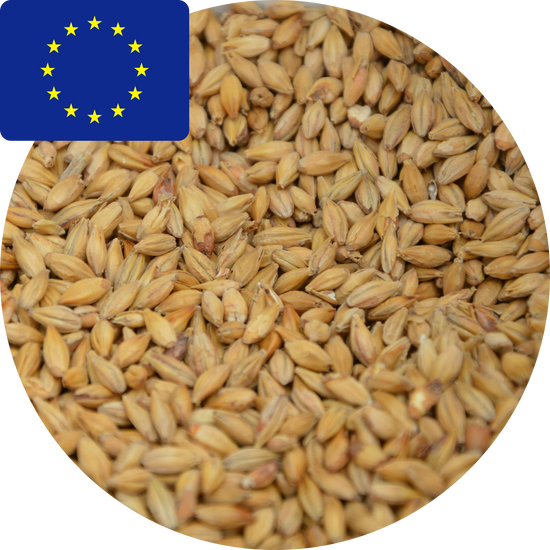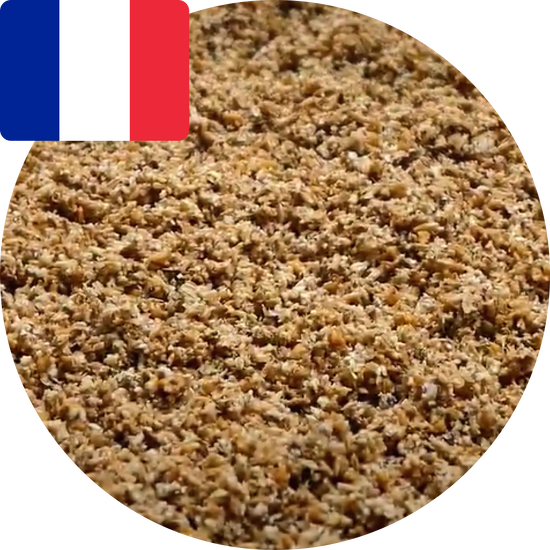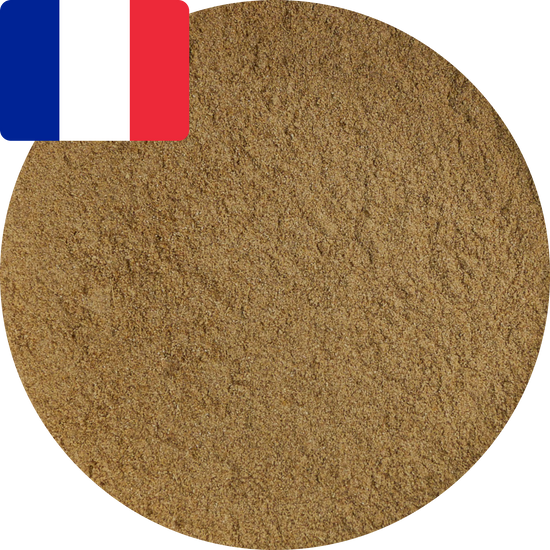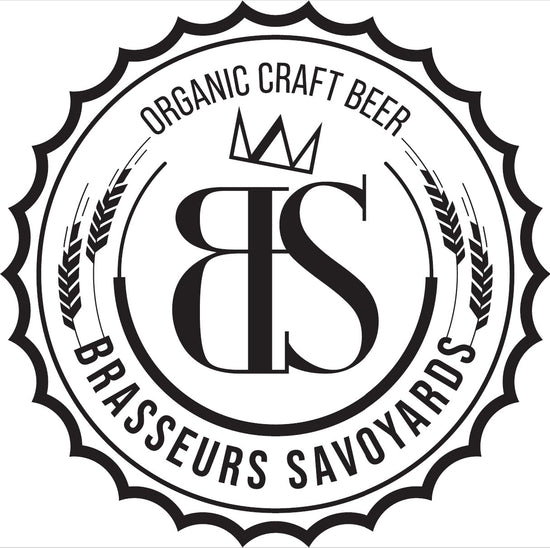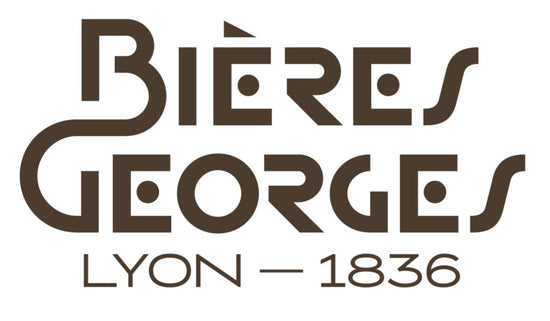Our production
With the discovery of brewer's spent grain, our production process and our quality approach, discover our expertise in alternative raw materials that come from the brewing industry!
Les drêches des brasserie, un déchet ? Non, une ressource !
88 % des céréales utilisées lors du brassage de la bière, aussi appelées “Drêches” sont gâchées.
La drêche est inévitablement produite lors du brassage de la bière. A l'étape initiale du brassage, appelée l’empâtage, le malt (principalement issu d’orge ou de blé) est concassé et plongé dans de l’eau chaude afin récupérer les sucres, naturellement présents dans ces céréales. Cette étape permet aux brasseurs de récupérer les sucres, et par la même occasion d'éliminer les éléments solubles.
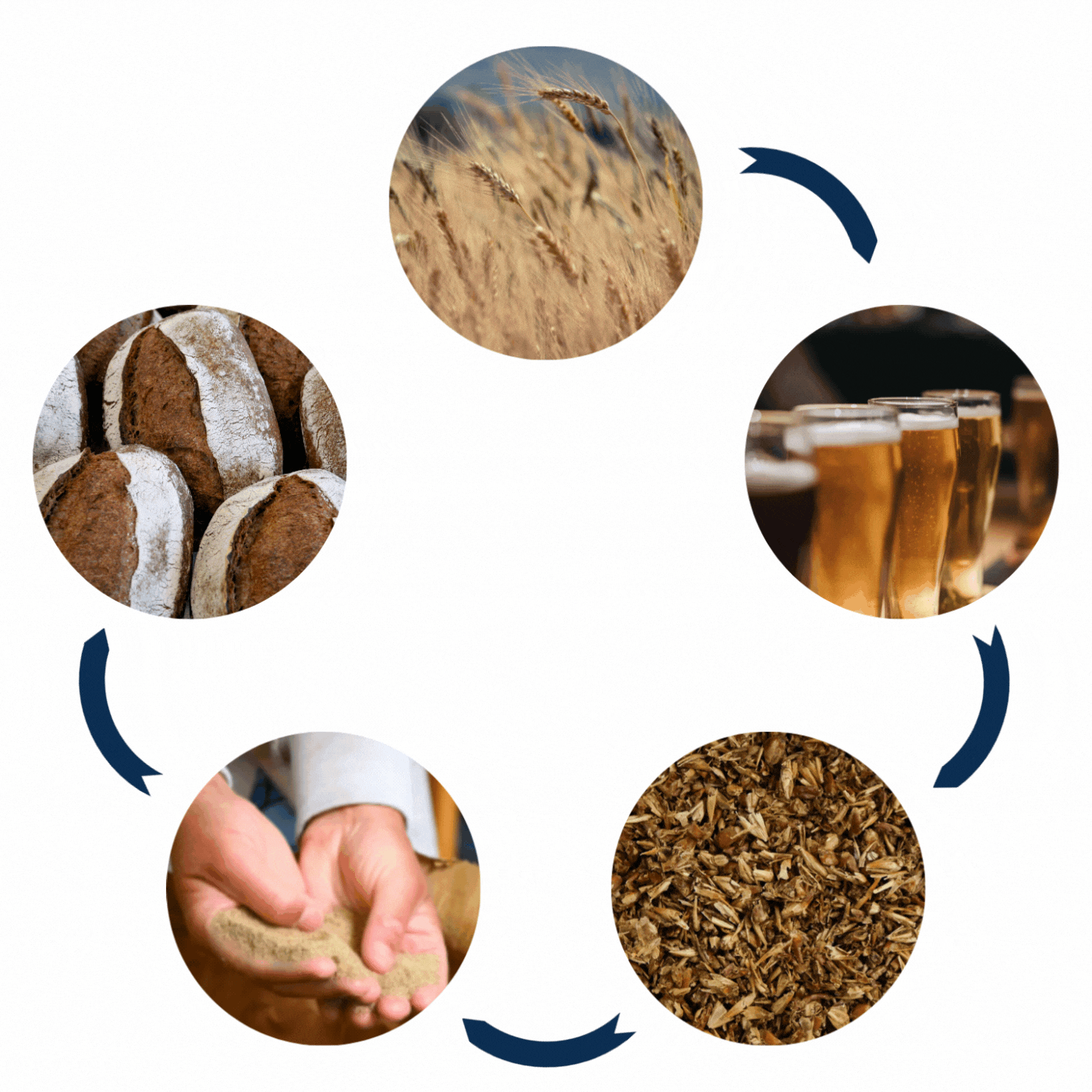
88% of the cereals used when brewing beer, also called “Spent Grains”, are wasted.
During mash, the brewer mixes water with crushed malt in order to extract the heart of the grain and the sugars necessary for making beer.
Once filtered, the solid part is collected and processed within our production sites in order to offer a range of ingredients rich in fibres, proteins and low in carbohydrates. In France, more than 700,000 tonnes of spent grain are produced each year.
Although it is already used in various recycling channels, spent grain is an important issue for breweries, the number of which continues to grow each year.
Brewers grains are a universal, rich and growing resource worldwide.
It is imperative to manage this resource adequately, as inappropriate treatment can have harmful consequences for the environment.
En France, c’est plus de 700 000 Tonnes de drêche qui sont produites chaque année.
Bien qu’elle soit déjà éliminée par diverses voies de revalorisation, la drêche est un enjeu important pour les brasseries, dont le nombre ne cesse de croitre chaque année. Il est impératif de gérer cette matière de manière adéquate, car un traitement inapproprié peut avoir des conséquences néfastes pour l’environnement.
La valorisation dans notre alimentation est une voie complémentaire aux voies existantes (alimentation animale, méthanisation) et offre une nouvelle alternative aux brasseurs et un nouvel ingrédient alternatif pour l'IAA.
Les drêches de brasserie ne sont pas un déchet mais bien une ressource universelle, riche et croissante dans le monde entier !
From spent grain to flour, there are only a few steps
Spent grain is inevitably produced when brewing beer. Indeed, during brewing, the malt (mainly from barley or wheat) is crushed in order to facilitate the release of the sugars naturally present in these cereals. These sugars are necessary to produce the alcohol present in beer via fermentation which occurs at the end of the manufacturing process. After crushing the malt, it is then immersed in hot water in order to recover the sugars which dissolve during this mixing.
Once filtered, the brewery recovers the liquid obtained to continue manufacturing the beer, while Maltivor collects the solid part, also called spent grain.
These cereals will be transformed, in a few steps, within our production sites. In fact, our production process stabilizes brewers’ spent grains through heat treatment. Grinding then reduces the spent grains into flour in order to offer a range of versatile products suitable for food processing .
Origin and Traceability
Maltivor guarantees the traceability of its products and works with local breweries based in the Auvergne Rhône-Alpes region and located within a radius of less than 100km. The spent grains are then transformed into ingredients and flours in the south of Lyon.
Our partner breweries
La collaboration avec les brasseries locales est essentielle dans la réalisation de notre mission.
C’est pourquoi nous travaillons avec différents établissements, qu’ils soient artisanaux ou industriels, avec une gamme conventionnelle ou une gamme certifiée agriculture biologique. Une quinzaine de brasseries ont choisi d’opter pour Maltivor, une solution qui se distingue par sa fiabilité, sa praticité et renforce leur engagement environnemental.
Our quality approach
The Maltivor teams have acquired real expertise in malt, brewing processes and the resulting spent grains.
Since the creation of the company in 2018, we have paid particular attention to knowing the raw materials we collect. This allowed us to establish specifications specific to each of our products and thus to standardize the batches of spent grains collected from different breweries. We then guarantee the homogeneity of our products from one order to another.
Our quality approach is based on the HACCP system specific to the food industry, and the traceability implemented with our brewing partners allows us to trace the spent grain back to the malt house. In addition, we have been committed to the Organic Agriculture label since 2020 and we aim to obtain IFS FOOD certification in 2024.

